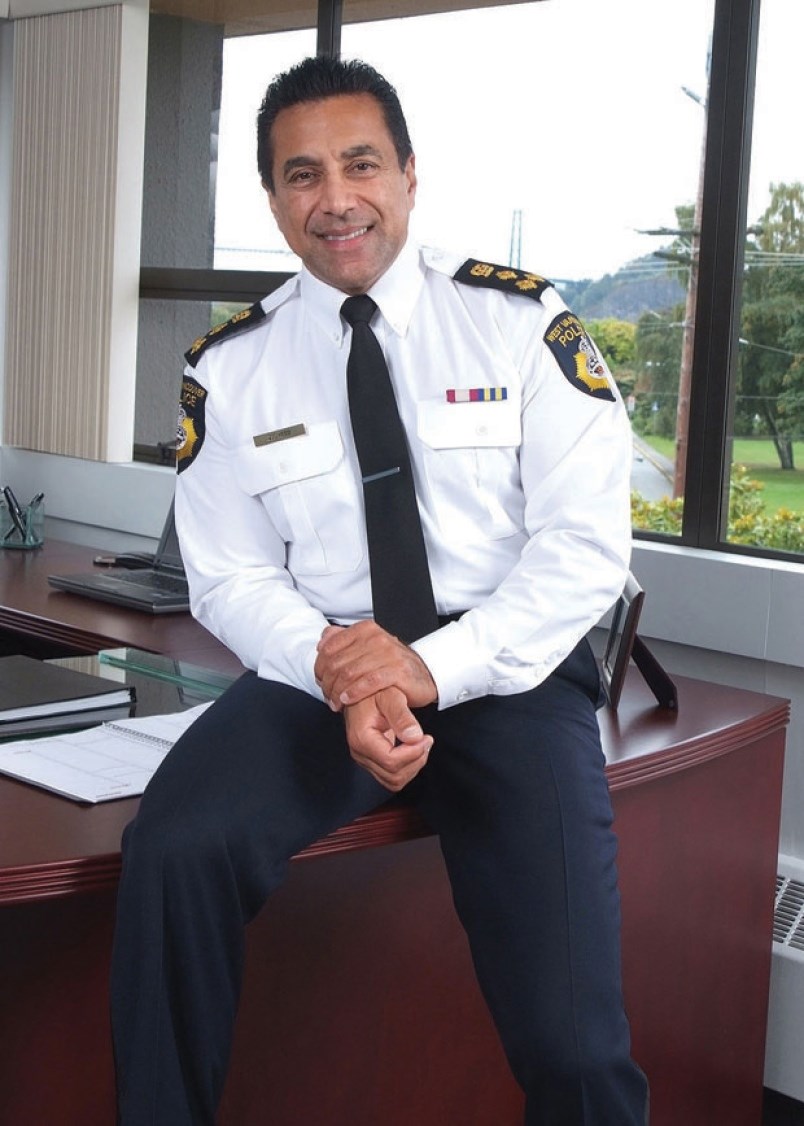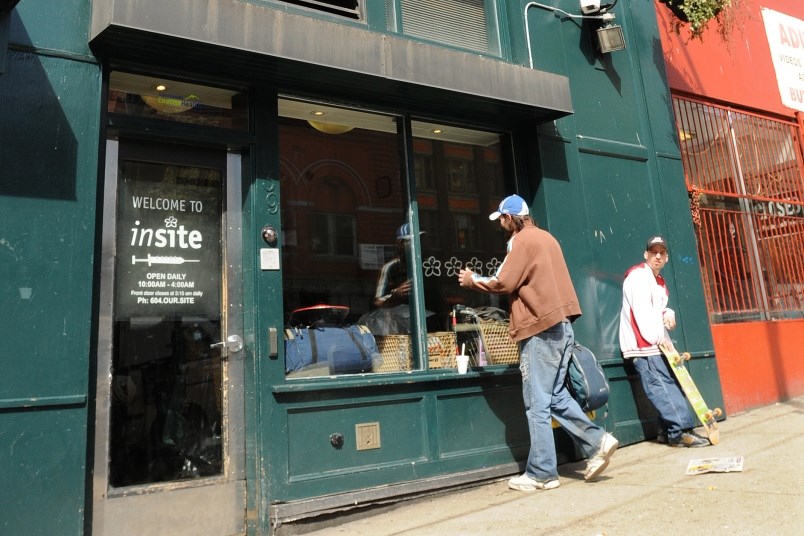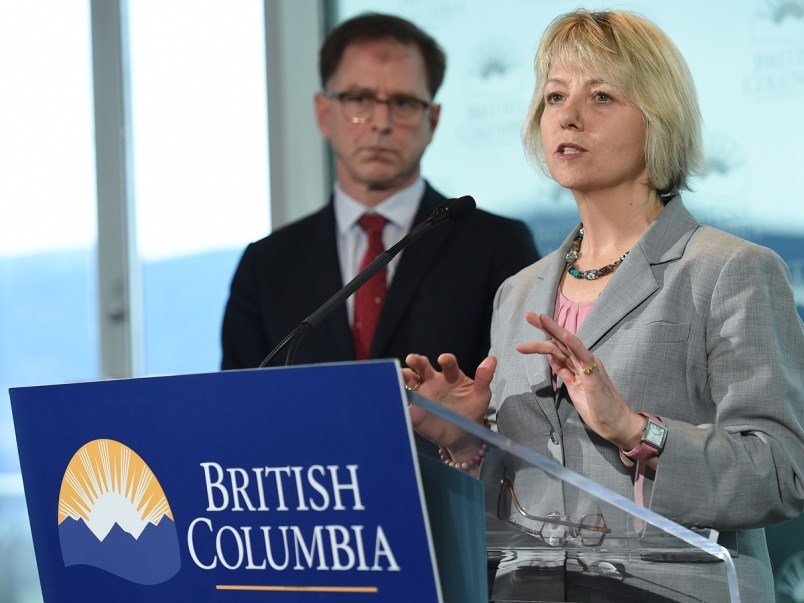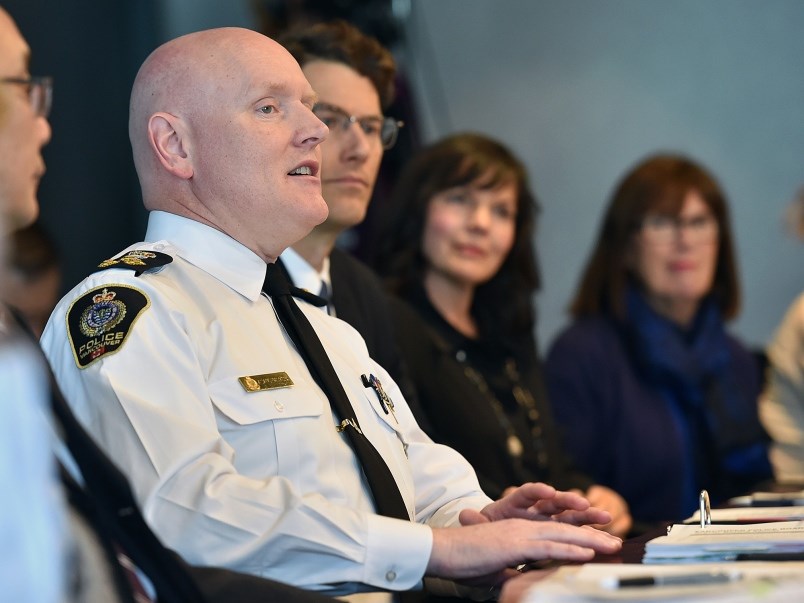Column: 12th&Cambie
So the country’s top cops want to decriminalize drug use now.
Maybe you heard the news last Thursday that the Canadian Association of Chiefs of Police called for the decriminalization of people found with illicit drugs for personal use.
Kind of a big deal.
That is, of course, if you live in a Canadian city other than Vancouver.
As I was reminded by a retired high-ranking Vancouver police officer a few hours after news broke of the chiefs’ support for decriminalization, the addiction-is-not-a-crime-and-should-be-treated-as-a-health-care-issue position is not revolutionary in these parts.
In fact, Kash Heed joked that he should sue the chiefs for plagiarism.
That joke was based on a serious presentation he made Nov. 7, 2001 to the Senate Special Committee on Illegal Drugs. At the time, Heed was an inspector with the Vancouver Police Department in charge of the drug and vice sections.
The focus of his presentation concerned marijuana, but he made clear what the VPD’s approach was on people caught with all types of drugs for personal use, including heroin and cocaine.
 Kash Heed when he was police chief in West Vancouver. File photo North Shore News
Kash Heed when he was police chief in West Vancouver. File photo North Shore News“The Vancouver Police Department’s policies focus drug enforcement resources on people who are making a profit from the sale of drugs,” Heed said almost two decades ago.
“Generally, simple possession charges are not pursued, regardless of the type of drug unless there are extenuating circumstances. We recognize that many of the people who use, or are addicted to drugs must be dealt with outside of the law enforcement system.”
In practical terms, he continued, Vancouver has “de facto decriminalization or de facto legalization” based on the wide margin of discretion afforded to the police. For marijuana specifically, Heed said he wasn’t alone in going on record in support of removal of criminal penalties for possession of the now-legal drug for personal use.
Nineteen years later, one of Heed’s former colleagues, Adam Palmer, spoke to reporters last Thursday as president of the Canadian Association of Chiefs of Police (CACP). Palmer is, of course, Vancouver’s police chief.
See if you notice any similarities in what Palmer said in 2020 to what Heed said in 2001.
“Being addicted to a controlled substance is not a crime and should not be treated as such,” he said from the VPD’s Cambie Street precinct.
“We are calling for the decriminalization of illicit drugs for personal possession of illegal substances. The CACP endorses alternatives to criminal sanctions for simple possession of illicit drugs for personal consumption. In other words, we recommend that Canada’s enforcement-based approach for possession be replaced with a health care approach that diverts people towards social and healthcare services and away from the criminal justice system.”
He continued: “Instead of police agencies recommending or laying criminal charges, we are suggesting that partnerships be formed and strengthened between healthcare, government, police and social service providers to ensure drug users have timely access to appropriate health, social and treatment services.”
As president of the chiefs’ organization, Palmer was reiterating what he’s already said numerous times in his tenure as Vancouver chief — that drug addiction is not a crime, more treatment is needed and such treatment should include a safe supply of prescription alternatives to deadly street drugs.
That’s all on the record, and has been for some time.
So has the VPD’s support of injection sites, with Vancouver being the first city in North America to allow a legal site — Insite on East Hastings — which opened in September 2003.
 The Insite supervised injection site on East Hastings. File photo Dan Toulgoet
The Insite supervised injection site on East Hastings. File photo Dan ToulgoetBut, as reporters heard Thursday, Canadian police forces continue to arrest people for simple possession of drugs.
Waterloo Police Service Chief Bryan Larkin, who joined the news conference via telephone, said Ontario typically has the highest charge rate across Canada for simple possession. But those charges are beginning to drop off, he said, although he didn’t provide statistics.
“What we’ve seen in the last two years is a decline in simple possession charges,” Larkin said.
“We started to see a trend, not only in Waterloo, but across Ontario where officers are looking at more diversion — individuals who are chronic drug users now actually being diverted and, or, put towards acute care intervention.”
At the same time, seeking an alternative to a charge heavily depends on what type of treatment facilities and programs are available in the cities in which police work. As we’ve seen in Vancouver, there aren’t enough.
Canada, however, has made some significant gains in harm reduction since Heed’s presentation in 2001 to the Senate committee, with 49 injection sites now operating in the country. Another 14 applications are under review from Health Canada.
Safe supply is also available in B.C., including prescription heroin for a select group of less than 200 people. The last time I spoke to Judy Darcy, B.C.’s Minister of Mental Health and Addictions, she told me 3,500 more people in B.C. receive medication-assisted treatment than when the NDP took office in July 2017.
Three forms of methadone, hydromorphone, morphine and Suboxone were among the medications she mentioned.
Regardless of those gains, decriminalization — whether defacto, or not — doesn’t legally exist in this country and now we have another organization calling for it to be written or edited in law.
Palmer and his fellow chiefs want a national task force created to research drug policy reform, and they want government to amend the section of the federal Controlled Drugs and Substances Act related to simple possession.
Prime Minister Justin Trudeau, who often talks about evidence-based approaches to policy, has repeatedly said his government doesn’t support decriminalization. That position does not appear to have shifted with pressure from police chiefs.
Health Minister Patty Hajdu and Attorney-General David Lametti did not respond directly to the chiefs’ request for decriminalization in their joint response emailed to Glacier Media following the chiefs’ news conference.
But the ministers said they “welcome their endorsement of a holistic approach including harm reduction and diversion, and thank them for their recommendations.”
“Working with other orders of government, substance use experts, service providers, first responders, law enforcement and people with lived and living experience, our Government remains committed to advancing evidence-based responses to help reverse the trend of opioid overdose deaths and other substance-related harms in Canada,” their statement said.
As many British Columbians know, the call for decriminalization has not just been made by harm reduction advocates — and now police chiefs — but by the very people the Trudeau government and Canadians now rely on for expertise in responding to the COVID-19 pandemic: public health doctors.
 Provincial Health Officer Dr. Bonnie Henry, along with Health Minister Adrian Dix. File photo Dan Toulgoet
Provincial Health Officer Dr. Bonnie Henry, along with Health Minister Adrian Dix. File photo Dan ToulgoetBoth doctors have pointed to the mounting death toll of people dying in B.C. of a drug overdose, with an all-time high of 170 deaths in the province in May — a statistic that brought Henry to tears.
More than 5,000 people died in B.C. of a drug overdose between the start of 2016 and end of 2019. In the first five months of this year, 554 people lost their lives in B.C. to drug use, most of them using alone inside a private residence.
As of Friday, 187 people in B.C. had died of COVID-19.
For Heed, who went on to become police chief in West Vancouver and then attorney general of B.C., he said he’s disappointed that 19 years after he spoke to senators about the need to decriminalize drugs that politicians continue to be politicians.
“They’re the ones that are going to be able to change the policy,” he said.
“The chiefs can say whatever they want. They have an amount of discretion that their officers can use, they have an amount of discretion that their organization can use in setting policy. But the overall policy has to come from our elected officials. And when we get this same rhetoric from our politicians, you can see even after almost 20 years, there’s been no real movement on this issue.”
Note: After I posted this piece, I came across some comments on Facebook from former Downtown Eastside cop, Dave Dickson. So here’s a take from another veteran of the streets on decriminalization:
“OK, I’m a little confused. The chiefs of police have now [announced] it’s time to decriminalize drugs. I remember 15 years ago as a police officer reading a memo from the federal Crown saying there will be no more charges for possession of marijuana, cocaine or heroin because it wasn’t in the public interest. I have spoken personally to most of the drug dealers out there in the Hastings corridor [and asked] if they are bothered by the police, and they just laughed. So can anyone explain to me why they think this is worth even discussing, as I think it’s pretty much already decriminalized, and it hasn’t made a difference whatsoever to the streets.”
@Howellings



